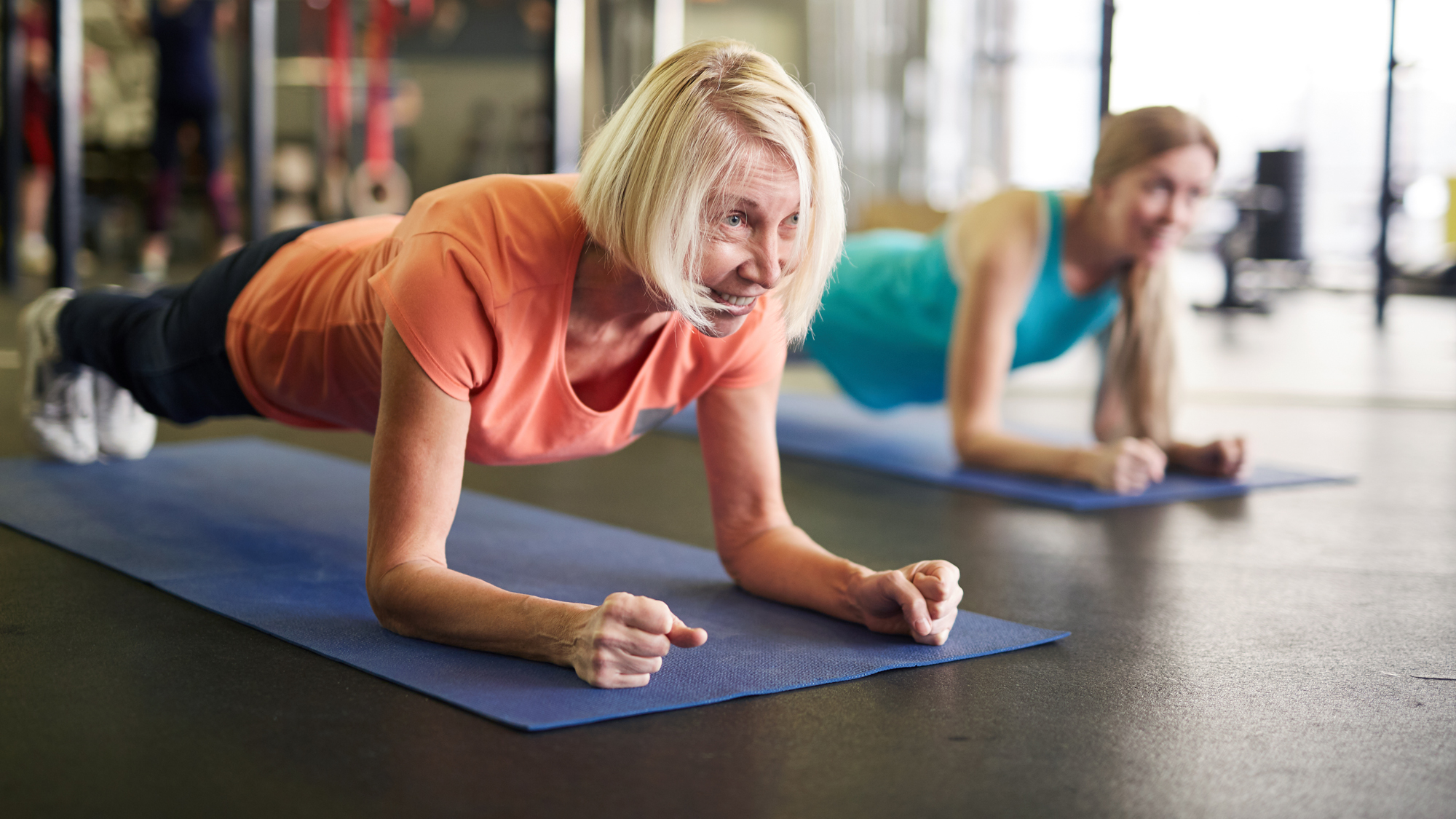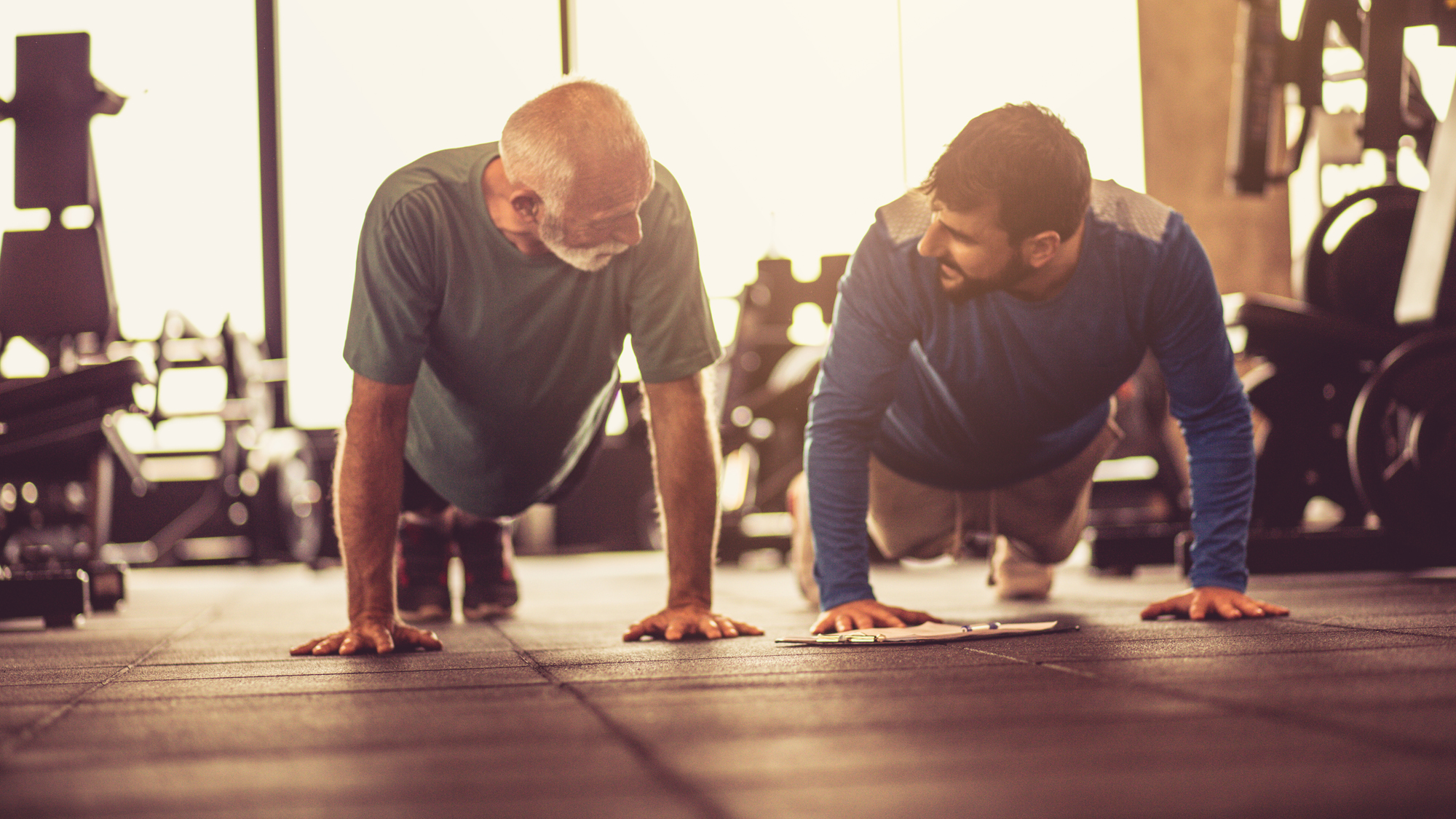Over 60? Research finds HIIT workouts lower your blood pressure
These short, intense sessions are a time-efficient way to improve your health, get fitter, and live longer


Start your week with achievable workout ideas, health tips and wellbeing advice in your inbox.
You are now subscribed
Your newsletter sign-up was successful
It's important to stay active as we age, but it's not always easy to find time to schedule a workout. You may not have time for hours-long training between family, work, and social commitments.
Many people find that High Intensity Interval Training (HIIT) is an ideal way to stay active when you're tight on time. Plus, all you need is a set of the best cross training shoes for support.
This training style is intense, which can make it seem quite daunting, particularly as we get older. But new research has shown that there are considerable benefits of HIIT workouts for over-60s.
According to a recent meta-analysis, a review of published research, regular HIIT sessions help reduce blood pressure in older adults, making it an ideal form of time-efficient exercise.
The authors analyzed ten studies with a total of 226 participants and found that HIIT led to reductions in both systolic and diastolic blood pressure, both critical measures of cardiovascular health.
Interestingly, they also noted that there were no reported differences in outcomes between HIIT and moderate-intensity continuous training, like going for a run or a machine-based cardio workout.

While there's a place for moderate-intensity workouts, there are several benefits to HIIT sessions. The most immediate is the time you need. Most HIIT workouts last between 15 and 30 minutes.
Start your week with achievable workout ideas, health tips and wellbeing advice in your inbox.
You'll do a selection of moves, usually for 40 seconds, followed by a 20-second rest before continuing to the next exercise. The training is effective because you keep the intensity high throughout.
It also makes these workouts ideal for all experience levels, including beginners, as the focus is on time, not reps. With regular practice, you'll get fitter and be able to fit more into the time.
If you're concerned about your joints, you still have options, like this low-impact Joe Wicks HIIT routine. Although it's intense, it's not rough on your body so that you can get fitter without injury or pain.
There are also high-intensity, low-impact exercises you can build into your day if you prefer to take things at your own pace. You'll still get the same fat-burning, health-improving benefits, though.
Our bodies change as we age, with aches, pains, and joint stiffness being the most noticeable differences. To reduce the effects, it's worth adding some of the best supplements for joints into your diet too.

James is a London-based journalist and Fitness Editor at Fit&Well. He has over five years experience in fitness tech, including time spent as the Buyer’s Guide Editor and Staff Writer at technology publication MakeUseOf. In 2014 he was diagnosed with a chronic health condition, which spurred his interest in health, fitness, and lifestyle management.
In the years since, he has become a devoted meditator, experimented with workout styles and exercises, and used various gadgets to monitor his health. In recent times, James has been absorbed by the intersection between mental health, fitness, sustainability, and environmentalism. When not concerning himself with health and technology, James can be found excitedly checking out each week’s New Music Friday releases.